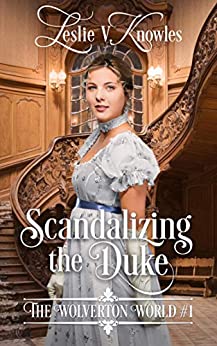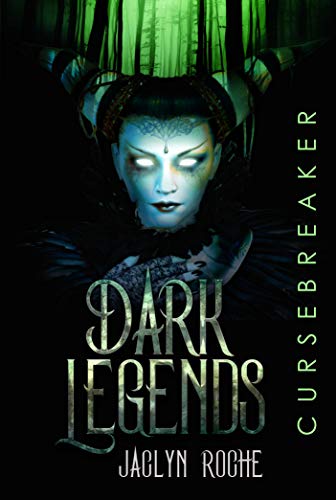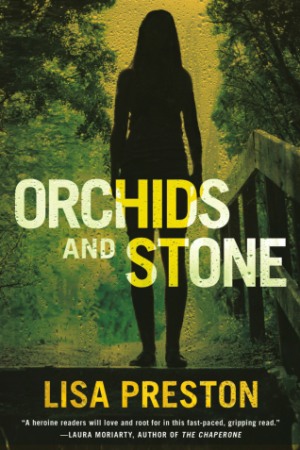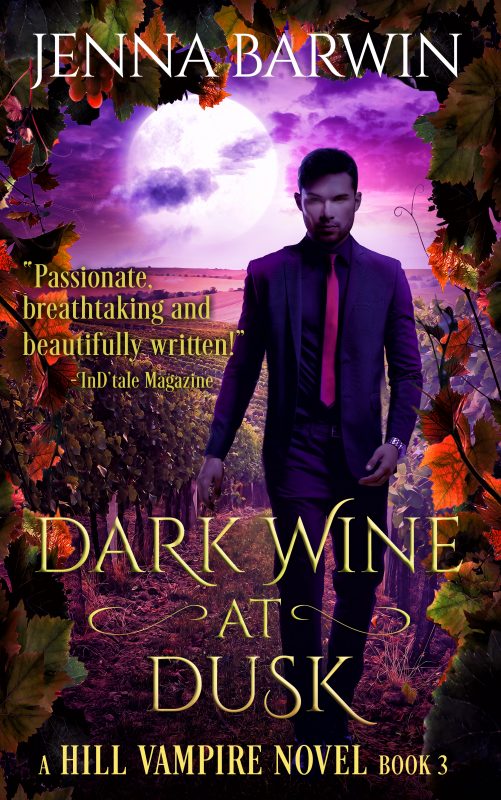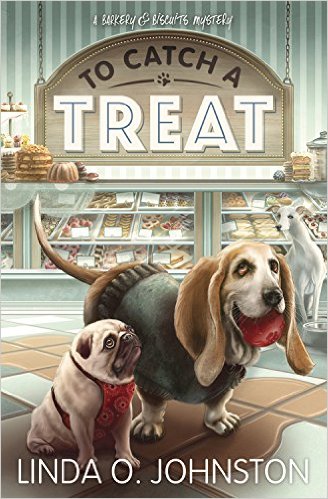Dear Extra Squeeze Team: Can I Publish with Amazon and Submit That Same Book to a Traditional Publisher?
January 31, 2018 by The Extra Squeeze in category The Extra Squeeze by The Extra Squeeze Team tagged as Hybrid Publishing, Indie vs. Traditional, publishing, The Extra Squeeze Team
Dear Extra Squeeze Team: I asked a published writer if one could publish with Amazon and submit that same book to a traditional publisher.
She said, “Yes, and if your book is accepted for publication, you then take it off Amazon.”
I’ve wondered if this is true. Can an Indie writer do this?
[tweetshare tweet=”Dear Extra Squeeze Team: Can I Publish with Amazon and Submit That Same Book to a Traditional Publisher?” username=”A_SliceofOrange”]

Rebecca Forster
USA Today Bestselling author of 35 books, including the Witness series and the new Finn O’Brien series.
Love the question. Here’s the answer. An indie author can do anything she darn well pleases.
Now ask the really important question: should she do it?
When I first started writing, I was rather impatient. Against the ‘rules’ I submitted to editors and agents simultaneously. My thinking was this: if an editor replied an agent would love to take me on because the hard work was done and if an agent replied first they would be happy to follow up with an editor who already had the manuscript. It all worked out fine. I sold my first book without an agent, got picked up by an agent because I had a deal, and life went on without a backlash or wrist slap. The strategy was mutually agreeable because the same book was being pitched and would benefit everyone on the food chain. Fast forward. Traditional publishers are now trolling the Internet for books that are doing well, they are signing hybrid deals and they are more open to creative publishing than ever before. However, if you break it down it looks like this.
1) A hybrid deal is not made for the same book but for unique material for each platform (i.e. one series for the traditional publisher and another for indie publication).
2) When a publisher picks up a successful digital book, the rights then are sold to the publisher and the author is no longer both an indie and traditional author. The indie books catch a traditional publisher’s eye earn their way into those deals by having great reviews and sales.
Therefore, if you have published your book on Amazon and submitted it to a traditional house you have put yourself in a risky position. The first thing an editor will do is look to see how many reviews you have and what the sales rank of the book is. If you have few reviews – and worse, bad reviews – and a sales rank in the high six figures your query will go into the round file.
My advice would be to determine your goals. Do you want to gain author cred by being published traditionally, or do you want creative freedom and a good chance of making decent money off your writing? Decide that before you actually do anything.
So, can you simultaneously publish and pitch? Sure you can. Would I do it? Nope. Traditional publishers have too much information at their fingertips. If you publish that book and the results are lackluster there is no incentive to pick you up.
I say set goals, create content appropriate for each opportunity and follow a focused plan to get the notice you want.
Robin Blakely
PR/Business Development coach for writers and artists; CEO, Creative Center of America; member, Forbes Coaches Council.
The published author has correctly answered your question, but only from a literal standpoint.
The issue is more complicated than it appears. The published author answered a simple question simply… without fully explaining the deeper details that need to be understood. You probably wondered if it could possibly be true because it seems too easy. Your intuition is correct that there is more to it, and it is good that you are questioning the information to find out more.
From my perspective, the real rabbit hole in this scenario is about the transparent status of the book BEFORE you offer to sell it to the publisher, not the issue of what to do with the work AFTER a publisher has agreed to purchase it. The publisher, the buyer of your created content, needs to be fully aware of your product’s real status in the marketplace when considering your work. It’s kind of like the notion that you have the right to know if the shiny car you are buying is new, used, or something in-between, like never driven, but hail-damaged. If your work is or has been for sale on Amazon, that is information that the traditional publisher has the right to know when the work is being considered by that publishing house.
There is no harm, no foul in asking what is required here or what is possible. Publishing is a mysterious business sometimes and it is hard to know what the rules are. In any business world the best practice is to shine a bright light on whatever seems unclear. I think that the question you really may be asking—or should be asking—is this: “If I decide to submit my book to a traditional publisher, do I have to tell the publisher that the book is already available online under my own name, or under a pen name, or under a different title?” The answer is “Yes.”

Jenny Jensen
Developmental editor who has worked for twenty plus years with new and established authors of both fiction and non-fiction, traditional and indie.
There is one fixed rule about today’s publishing industry: the rules are always changing. You can count on that. Not that many years ago an author who submitted their work to two different publishers at the same time had committed an unredeemable faux pas. Simultaneous submission, or double submission, was enough to get an author blackballed. This query sounds a bit like making a simultaneous submission, but the rules have changed, the playing field is radically different.
Publishers no longer hold all the power. Anyone can offer their work on Amazon, Nook, Smashwords. If your book has a compelling premise, is well written, well edited, well formatted, well designed, and well marketed, then you have a product that could catch the eye of a traditional publisher. It’s happened before.
Amanda Hocking, Louise Voss, J. Carson Black are examples. The strength of their writing propelled their independently published books to No. 1 sellers, which caught the attention of traditional publishers who then offered these writers deals to publish future work. In the case of Louise Voss her successful indie book Catch Your Death was also reprinted and redistributed traditionally. That’s the only example I know of where a traditional publisher re-released an indie success. You can look at it as Voss’s indie serving as an audition that won her a traditional book contract.
If an author publishes their own work and then submits that same work to a Random House type imprint I don’t see where that is against the rules that are ever changing. I would suggest that they be up front about the indie offer. And it would be smart to hold off seeking a traditional publisher until the indie book has garnered a sales record and favorable reviews. A measure of success with an indie book not only showcases the writer’s talents but also their marketability.
H.O. Charles
Cover designer and author of the fantasy series, The Fireblade Array
Yes, you can submit your book to a publisher even if it is already on sale on Amazon. It is up to you how you negotiate the terms of the deal they offer (if they offer one). Some writers keep their existing back catalogue self-published, but only give the publisher the rights to sell later books. I understand that is what fantasy author Daniel Dalglish did with Orbit. There is another thing to consider, however, and that is your book may appear less attractive to a publisher if it has already been published, but either doesn’t sell well/is not well-received, or is already too widely distributed and they feel they cannot make money from it. If you’re someone like E.L. James, however, that’s not as much of a problem!
[tweetshare tweet=”A Question about Writing or Publishing? Ask the Extra Squeeze Team! https://www.asliceoforange.net/contact/the-extra-squeeze/” username=”A_Slice of Orange”]
Do you have a writing or publishing question?
Send them to the Extra Squeeze Team!
https://www.asliceoforange.net/contact/the-extra-squeeze/
Ever wonder what industry professionals think about the issues that can really impact our careers? Each month The Extra Squeeze features a fresh topic related to books and publishing.
Amazon mover and shaker Rebecca Forster and her handpicked team of book professionals offer frank responses from the POV of each of their specialties — Writing, Editing, PR/Biz Development, and Cover Design.

Does the Extra Squeeze Team Think an Author Can Be Published both Traditionally and Indie?
October 31, 2017 by The Extra Squeeze in category The Extra Squeeze by The Extra Squeeze Team tagged as Hybrid Publishing, indie publishing, traditional publishing, Writing Advice
Does the Extra Squeeze Team Think an Author Can Be Published both Traditionally and Indie?
I’m a traditionally published author and I have several ideas that I would like to publish independently. Will my publisher be upset? Can an author really be published both traditionally and independently?
[tweetshare tweet=”Can an author really be published both traditionally and independently?” username=”A_SliceofOrange”]

Rebecca Forster
USA Today Bestselling author of 35 books, including the Witness series and the new Finn O’Brien series.
Like so many other authors, I walked a fine line for years as I tried to create a viable writing career while not upsetting the publishing apple cart. I knew there were fifty worthy authors out there waiting to take my place on the list if I made waves with my agent or publisher. The majority of writers in the last many years were playing real-life Chutes and Ladders and more than likely we were all going to end up at the bottom of a chute.
I made a decision not to continue pursing a traditional career when I submitted a book that I believed would take my work to a new level. It was rejected by any number of publishers. They didn’t want to take a chance, and I couldn’t blame them. If they published a book that was not what my reader’s had come to expect, they might not make back the investment they had made in me. Coming from a business background, I understood that editing, cover design, distribution, sales, and returns could all be translated to a line item on the publisher’s balance sheet.
Realizing that distribution channels were tightening up, wanting to explore how far I could take my craft, I published that book on my own. Happily, I found the editors were wrong. Readers bought it, liked it and understood it. I went on to republish and expand a series that the publisher believed had run its course. The first book has had over 4 million downloads, and the series has over seven thousand reviews.
Today, the chutes remain the same but there is more than one ladder to climb, and an author’s fate is in her (or his) hands.
So here are my answers to your questions, and a little advice. First my answers.
Yes, it is possible to publish both traditionally and independently. I’ve met many authors who have had great success as hybrids.
Your editor will be upset only if you don’t pursue hybrid publishing in a professional manner. If the editor has turned down your ideas, then you are free to pursue other avenues. If you are contractually bound to first right of refusal with your publisher, then show them your new ideas and make your decision after you hear what the editor has to say.
[tweetshare tweet=”Traditional or Indie: Advice from @Rebecca_Forster” username=”A_SliceofOrange”]
And now for the advice:
Treat both your traditional and independent publishing with the same professionalism. Your readers won’t change; they will still expect good writing, an excellent story, and a well-produced book.
When marketing, use your traditional success to bolster your independent publishing, use your independent success to bolster your traditional work. This is a win/win for the hybrid author.
So go for it. Execute those ideas that may not be in the mainstream. Be bold; be brave. Publishing is exciting, scary, full of choices and marvelous no matter which road you take.

Jenny Jensen
Developmental editor who has worked for twenty plus years with new and established authors of both fiction and non-fiction, traditional and indie.
Not being an expert on the publishing industry I’m certain I don’t have an expert response, but I do know there are a lot of hybrid authors. A quick Google search reveals a ton of articles on the pros and cons of hybrid publishing — mostly pros. Traditionally published writers who go indie, and vice versa, often find having a stake in both worlds to be a lucrative model. If there isn’t an existing contract with a publisher, what’s there to be mad about? Indie is a fabulous opportunity.
[tweetshare tweet=”Editor Jenny Jensen Traditional vs Indie: The Indie option makes the issue of quality even more critical.” username=”A_SliceofOrange”]
What I am certain of is the Indie option makes the issue of quality even more critical than in pre-digital days. All work that leaves your hands, all work with your name on it must be the best it can be. For a traditional publisher you have to offer the best work you possibly can if you want to even be considered for publication. But traditional publishers have the back up of a slew of editors who expect to work with a compelling manuscript to make it the best they feel it can be. Your work simply has to be so good it merits a publisher’s investment. That bar is set pretty high. A good freelance editor will improve your odds of clearing it.
An Indie writer has only the back up she invests in her work. If you release a poorly edited book, regardless of how exciting the premise is, or how charming your characters or how riveting your action, you lose readers and the credibility of your name — you lose your opportunity. An Indie author must themself invest all the necessary effort and services offered by a publishing house. The return on that investment is success, creative control and much juicier royalties.
I edit each of my clients as if their work were going to the Nobel committee. The goal is to make a perfectly crafted story that can measure up to both a Random House editor and all those discerning readers downloading to their devices. That should be every writer’s goal — traditional or Indie. The services of an editor are a part of achieving that.

Ever wonder what industry professionals think about the issues that can really impact our careers? Each month The Extra Squeeze features a fresh topic related to books and publishing.
Amazon mover and shaker Rebecca Forster and her handpicked team of book professionals offer frank responses from the POV of each of their specialties — Writing, Editing, PR/Biz Development, and Cover Design.
Robin Blakely
PR/Business Development coach for writers and artists; CEO, Creative Center of America; member, Forbes Coaches Council.
Frankly, who cares if your publisher is upset?
Of course, as a PR professional, I love to make sure there is harmony amongst the people, that protocol is maintained, and that diplomacy is the hallmark of all relationships.
But here is the reality: it is tough being a professional writer. You have a right to make a living as a writer in a world that often does not value your talent appropriately.
[tweetshare tweet=”@RobinBlakely says: Please think of your writing career as a business.” username=”A_SliceofOrange”]
If your publisher wants to throttle your ability to earn an income, I would be very concerned about working with that publisher. Anytime there is oppression, fear, or a sense that you must go out of your way to manage your publisher’s emotional state, walk away. Being told how and when and what to do—and not do–with your career is suffocating. You can do better. It is possible to publish traditionally and independently simultaneously and create a promotional strategy that allows both profit streams to flourish.
Please think of your career as a business. You are the brand. The publisher is a business partner. If you are kept in the dark or restricted from succeeding, what kind of partnership does that make? Not one that is good enough for you.
If only I were published traditionally, I would have a better answer to this!
I do know of another fantasy author who has done both. He started off as self-published and then signed over some of his books to a big-name house. In that situation, both parties were winners. He gained more publicity, and they knew they were supporting a writer who was already popular (and could therefore make money from him).
If it’s the other way around, I’m not so sure. They may be spending ££££ on your PR, so might not appreciate it if (as a ludicrous example) they had built and sold an image of you as a sweet, softy romance author, and then you went and published a treatise on the pros of Nazism. I guess that’s the question to ask: “Will my publishing independently cause a loss on their investment in me?”
[tweetshare tweet=”H.O. Charles: Will your publishing independently cause a loss on your publishers investment?” ” username=”A_SliceofOrange”]
Affiliate Links
A Slice of Orange is an affiliate with some of the booksellers listed on this website, including Barnes & Nobel, Books A Million, iBooks, Kobo, and Smashwords. This means A Slice of Orange may earn a small advertising fee from sales made through the links used on this website. There are reminders of these affiliate links on the pages for individual books.
Search A Slice of Orange
Find a Column
Archives
Featured Books
SCANDALIZING THE DUKE
So far as the Duke of Wolveton is concerned, Charlotte Longborough is a scandal waiting to happen.
More info →
DARK LEGENDS: CURSE BREAKER
Kalissandra Doe has a to-do list worthy of the reincarnated goddess she could be.
More info →ORCHIDS AND STONE
They’re trying to take me. Help! Help me, please.
More info →DARK WINE AT DUSK
A seductive spy. An alpha vampire. A hidden threat...
More info →TO CATCH A TREAT
When a Dog-Snatching Scheme Leads to Murder, Carrie Must Sniff Out the Truth.
More info →Newsletter
Contributing Authors
Search A Slice of Orange
Find a Column
Archives
Authors in the Bookstore
- A. E. Decker
- A. J. Scudiere
- A.J. Sidransky
- Abby Collette
- Alanna Lucus
- Albert Marrin
- Alice Duncan
- Alina K. Field
- Alison Green Myers
- Andi Lawrencovna
- Andrew C Raiford
- Angela Pryce
- Aviva Vaughn
- Barbara Ankrum
- Bethlehem Writers Group, LLC
- Carol L. Wright
- Celeste Barclay
- Christina Alexandra
- Christopher D. Ochs
- Claire Davon
- Claire Naden
- Courtnee Turner Hoyle
- Courtney Annicchiarico
- D. Lieber
- Daniel V. Meier Jr.
- Debra Dixon
- Debra H. Goldstein
- Debra Holland
- Dee Ann Palmer
- Denise M. Colby
- Diane Benefiel
- Diane Sismour
- Dianna Sinovic
- DT Krippene
- E.B. Dawson
- Emilie Dallaire
- Emily Brightwell
- Emily PW Murphy
- Fae Rowen
- Faith L. Justice
- Frances Amati
- Geralyn Corcillo
- Glynnis Campbell
- Greg Jolley
- H. O. Charles
- Jaclyn Roché
- Jacqueline Diamond
- Janet Lynn and Will Zeilinger
- Jeff Baird
- Jenna Barwin
- Jenne Kern
- Jennifer D. Bokal
- Jennifer Lyon
- Jerome W. McFadden
- Jill Piscitello
- Jina Bacarr
- Jo A. Hiestand
- Jodi Bogert
- Jolina Petersheim
- Jonathan Maberry
- Joy Allyson
- Judy Duarte
- Justin Murphy
- Justine Davis
- Kat Martin
- Kidd Wadsworth
- Kitty Bucholtz
- Kristy Tate
- Larry Deibert
- Larry Hamilton
- Laura Drake
- Laurie Stevens
- Leslie Knowles
- Li-Ying Lundquist
- Linda Carroll-Bradd
- Linda Lappin
- Linda McLaughlin
- Linda O. Johnston
- Lisa Preston
- Lolo Paige
- Loran Holt
- Lyssa Kay Adams
- Madeline Ash
- Margarita Engle
- Marguerite Quantaine
- Marianne H. Donley
- Mary Castillo
- Maureen Klovers
- Megan Haskell
- Melanie Waterbury
- Melissa Chambers
- Melodie Winawer
- Meriam Wilhelm
- Mikel J. Wilson
- Mindy Neff
- Monica McCabe
- Nancy Brashear
- Neetu Malik
- Nikki Prince
- Once Upon Anthologies
- Paula Gail Benson
- Penny Reid
- Peter Barbour
- Priscilla Oliveras
- R. H. Kohno
- Rachel Hailey
- Ralph Hieb
- Ramcy Diek
- Ransom Stephens
- Rebecca Forster
- Renae Wrich
- Roxy Matthews
- Ryder Hunte Clancy
- Sally Paradysz
- Simone de Muñoz
- Sophie Barnes
- Susan Squires
- T. D. Fox
- Tara C. Allred
- Tara Lain
- Tari Lynn Jewett
- Terri Osburn
- Tracy Reed
- Vera Jane Cook
- Vicki Crum
- Writing Something Romantic
Affiliate Links
A Slice of Orange is an affiliate with some of the booksellers listed on this website, including Barnes & Nobel, Books A Million, iBooks, Kobo, and Smashwords. This means A Slice of Orange may earn a small advertising fee from sales made through the links used on this website. There are reminders of these affiliate links on the pages for individual books.

